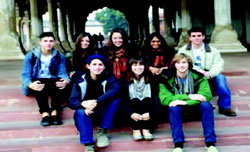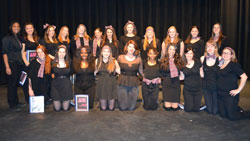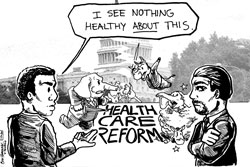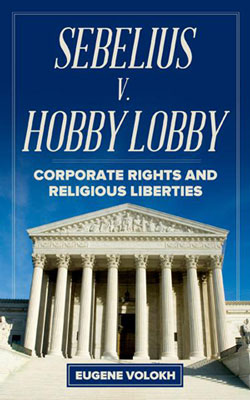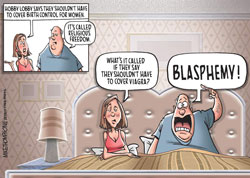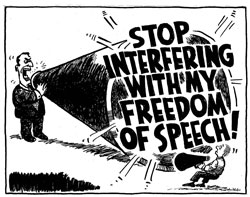My journey at The Outlook started with Casey Wolfe (whom you’ll meet later) and I deciding to go to the Involvement Fair. I was a sophomore and she was a freshman, both of us looking to get involved. I ended up talking to Dr. Patten who introduced me to Sandra and I never looked back.
Politics
“Here’s Looking at You Monmouth” | Jessica Roberts’ Senior Goodbye
Real World, I Think This Is the Beginning of a Beautiful Friendship
Goodbye is such a bittersweet concept, especially when put in the terms of a graduation. On one hand, you are excited about the next step in life, for whatever that may be, a great unknown that you have never experienced before. Yet on the other hand you are leaving a place that has become a home to you over the years, and with the family like ties that have been formed with friends with that home. Suddenly you begin to see everything as if it is the first time, the cafeteria food suddenly tastes slightly better, the squirrels much cuter and the landscape even appears slightly greener.
An Interview on the State of Argentina: Past, Present and Future
Dr. Kenneth Mitchell is an Associate Professor of Political Science at Monmouth University. Having completed a PhD in Politics at Oxford University, his extensive knowledge on Latin American Politics is evident through his instruction of PS 275 Latin American Politics and PS 398 Argentine Politics.
Congresswoman Proposes Legislation to Toughen Laws Against Sexual Assult on College Campuses
A California congresswoman has announced plans to introduce federal legislation to toughen laws against what she called an epidemic of sexual assault on college campuses.
Monmouth University Poll Explains “Obamacare” and Its Impact on New Jersey
A poll from the Monmouth University Polling Institute found that 45 percent of New Jerseyans support the Affordable Care Act (ACA), while 49 percent oppose it. After compiling the data of 803 respondents between March 30 and April 1, the poll detailed the Garden State’s response to essential questions dealing with the efficacy of both governmental figures, as well as the ACA itself
Hobby Lobby Case: Should Contraceptives Be Covered Under Health Insurance? Pt.2
As some of you may know (or may not know) the Supreme Court is hearing a case that could potentially give corporations the right to refuse some, or even all contraceptive services, on the basis that it is against their religious rights. When the Affordable Care Act (aka “Obamacare”) went into effect, health insurance companies were required to cover all forms of birth control. As per the law, religious non-profits were exempted from having to provide birth control through their offered health care plans. The Hobby Lobby, a for profit organization, brought the case to court because the CEOs are conservative Christians, and they object to IUDs and the morning after pill, saying that they are forms of abortion because they prevent life from forming, according to NPR. The Supreme Court is expected to reach a decision in June.
Hobby Lobby Case: Should Contraceptives Be Covered Under Health Insurance? Pt.1
Here we go again, yet another “Obamacare” controversy and another case of the federal government treating the Constitution like its toilet paper. On March 25, the Supreme Court heard its oral arguments from the owners of Hobby Lobby and the federal government. The issue is that the owners of Hobby Lobby are forced under the Obamacare mandate, to pay for contraceptives in their employees’ health insurance. The mandate includes 20 forms of government approved contraceptives. The Green family is against covering four of those forms of contraceptives because they believe that they are similar to abortion, which is against their religious beliefs. Hobby Lobby’s opposition argues that the company itself is violating the rights of its employees but that is not the case. In fact, the owners of Hobby Lobby’s rights are the ones being infringed upon and here’s why.
GUC Event: “I Want to Commit a Crime But in Which Nation, The USA, China or Japan”
Dr. Peter Lui, associate professor of criminal justice and Chair of the Criminal Justice Department hosted a Classroom Colloquium called, I Want to Commit a Crime, But in Which Nation, The USA, China,or Japan.
Hobby Lobby Case Could Have Impact on Contraceptives and Health Insurance
The Supreme Court heard the oral arguments of Hobby Lobby, a national chain of crafts stores based in Oklahoma City, and its opposition. The debate started in September of 2012 when the Green family, who are the devout Christian owners of Hobby Lobby and other members of the company, filed a suit in the U.S. District Court in the Western District of Oklahoma.
The Supreme Court Got it Right
McCutcheon vs. Federal Election Commission Case Debated
Capitalism underpins the greatest freedoms in the United States. The goal of earning individual profits is inherent in a free society, with personal gain acting as a motivator in a fluid class structure. As it relates to the recent decision of McCutcheon v. Federal Election Committee, the Supreme Court opted to protect the capitalistic rights of the individual, voting against the campaign finance limits set forth by the Bipartisan Campaign Reform Act. The act, according to fec.gov, sought to limit campaign contributions made by individuals so as to fight corruption within the political sphere.


